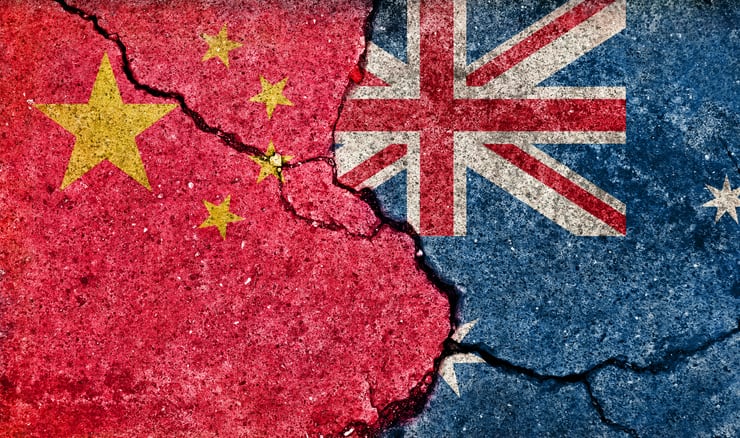China’s National Development and Reform Commission (NDRC) announced on May 6 that it has decided to “indefinitely suspend all activities under the framework of the China-Australia Strategic Economic Dialogue” jointly held by both the Chinese and Australian governments.
It came after China accused Australian government officials of launching “a series of measures to disrupt the normal exchanges and cooperation between China and Australia out of Cold War mindset and ideological discrimination.”
Some sectors from Australia have already taken a hit prior to this announcement amid deteriorating ties between the two countries.
In March, China said it would hike duties on Australian wine imports for up to five years, with levies ranging from 116.2 per cent to 218.4 per cent. Other sectors affected are coal and barley.
At the moment, China remains the biggest market for Australia’s complementary medicines exports, accounting for over 70 per cent of the exports last year.
In response to queries from NutraIngredients-Asia, Complementary Medicines Australia (CMA) CEO Carl Gibson said the industry body had been working closely with its Chinese counterpart – the China Chamber of Commerce for Import & Export of Medicines & Health Products (CCCMHPIE) – and shared a “strategic partnership.”
“We know that the Chinese consumers love Australian complementary medicines because of their effectiveness and we truly hope that we have the goodwill and continue to keep the trust of the Chinese consumer to provide them with access to some of the best products in the world,” he said.
On the other hand, independent private equity firm Cortina Capital pointed out that trade tension usually affects upstream commodities sector and less so on finished goods.
Cortina Capital is an independent private equity firm that focuses on investing in middle market businesses in Australia and New Zealand’s health and wellness sector with export potential to Asian countries, especially China. Its portfolio company at the moment is ATP Science from Australia.
“If you look at all these trade tensions and trade negotiations, the impact is much more pronounced on the upstream assets,” said Alex Wu, founding partner and CEO of Cortina Capital.
“Also, when it comes to the downstream value-added brands, it is very difficult to distinguish whether a product is from Australia.”
He pointed out that a number of supplement brands with Australian heritage have been acquired by Chinese firms, including Swisse which is owned by Health and Happiness (H&H) Group and Vitaco, which has been bought over by Shanghai Pharmaceuticals and private equity firm Primavera Capital.
Another example is Nature’s Care. Its majority stake has been bought by two Chinese private equity firms JIC Investments and Tamar Alliance Fund in 2018.
“At the end of the day, if it [the trade tariffs] goes down to downstream value-added products, isn't the Chinese government hurting themselves? Because these brands are after all, owned by the Chinese.”
Consumers preference
On the other hand, Wu pointed out that consumers’ preference was also at play.
“I think at the end of the day, whether the Chinese consumers will just change their behaviour, I think that remains to be seen.
“The image of a country that has a higher safety standard, high quality produce, clean image…I think these are also factors which make it difficult for consumers to change their mindset [about Australia-made products].”





